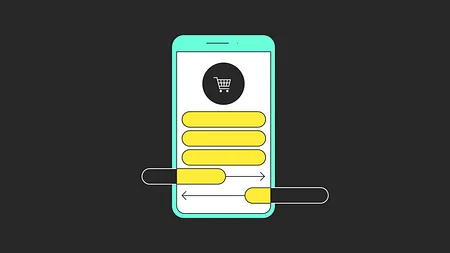Financial Inclusion and Why it's Necessary for Everyone
Tucked away in a small corner of the WeWork offices in Aldgate Tower, I sat down with Ross Gallagher. Financial inclusion is the touchstone on financial products for Ross. Regular host of the Fintech Insider podcast with a history in financial services consulting and research. Ross is known around the office as a tupperware fiend and always up for a laugh but as with many people who work for 11:FS he has a real passion for finance and financial inclusion in particular.
Financial Inclusion Matters
“It’s about access to services, you need a bank account to pay your rent, get an uber or pay for a hotel room.”2 billion people in the world today don’t use formal financial services. Getting these people into the economy is a surefire method of boosting wealth for consumer and company. Financial inclusion is essentially getting the unbanked to become a part of the wider economic society. Ross has done a lot of research into the financial services industry. The more he saw the more he realised that financial exclusion is a key stumbling block in life. And it’s not just a matter of poverty, ecommerce expats need an account to get settled into the country. But without a proof of address they’re unable to get a bank account. Without a bank account they’re unable to pay rent to get an address. It’s a catch-22. People from multiple financial levels are excluded from fully engaging with the economy and living a better life.
“More people using money in the formal economy is a benefit to everyone”“Fintech can address these problems” he said, before sitting back to explain why the unbanked matter. 2 billion people is a massive market, comprised of adults who for many reasons have no bank account, be it: poor credit, thin credit file, financially illiterate, blacklisted, the list goes on. However, that’s still 2 billion people using cash that’s untapped. There’s some progress being made in this area, the previously excluded now have alternatives to payday loans and credit builder cards.
Untapped Market Opportunities
From a provider’s perspective there are plenty of reasons to tap into an underserved segment like the unbanked. Providers can use nudge theory and implement educational models into apps and services to encourage healthy spending habits. Using that influence, providers can create an ideal customer and an entirely new revenue stream.“We don’t know what banks minimum requirements are regarding credit scores”While the underlying principle is relatively simple there are two key tasks for the provider. First they need to verify their customer’s identity, a process that deals in confidence levels and can never be binary. Secondly, they need to check credit scores so they can build a risk profile. Unfortunately, Equifax and Experian used to dominate the market. This meant they could easily be secretive about their scoring methods. Given the recent Equifax hack where 143 million people’s personal details were been stolen, public trust in those particular entities has suffered severe damage.
Trust is Key
Banks don’t currently do much to mitigate loss of public trust. They exist as a walled garden where consumers are either in or out. Those who are in have access to all the credit, financial, and banking services that comes with a bank account. But those who are out are completely cut off. There’s no on-going support, alternatives or advice. Ross believes that fintechs are primed to fill the gap, They can still use credit reference agencies to verify identification but rethink the use of credit scoring to provide services. This can take multiple forms. Until recently rent was excluded from credit scores. But now fintechs are able, by gaming the system, to apply the biggest chunk of most people’s pay cheques to their credit score. That’s one of the potentials from open banking. By using a sophisticated API to track spending habits, fintechs can develop a superior credit picture that’s much more revealing of a person’s spending habits. However, it’s still a walled garden, even using these services there are people who will be included and those who will be excluded. Real innovation will be the company that comes up with the idea that removes the wall altogether.What Fintechs Can Do
Removing the wall between banks and the unbanked is the most vital task for financial inclusion. Ross has insights on a few ways fintechs could achieve this through progressive onboarding. Restrictions placed on basic products so higher risk services aren’t immediately available and push notifications to educate customers on better financial management. Over time this should build positive financial behaviour. Gamification of financial services where customers unlock banking features will also create real attainable goals for them. It'll also make financial inclusion attractive to customers. All of this will help customers get the most from their money and create value for the fintech. No-one teaches people how to manage money, especially in the UK. It’s a common complaint that schools never taught us how to pay our taxes, save for a house, or save in general. It’s a service with a market, evidenced by credit card debt in both the UK and USA being higher today than 2008.“Offer tailored solutions for specific needs”A major problem for fintechs and incumbents is public perception, scandals like the Experian data loss don’t help. So how can providers prove their trustworthiness? Proving proof of concept is vital. If fintechs can show how they can help customers achieve goals and tailor their services to that end then they’ll be able to establish real value for customers. Right now, Ross believes providers aren’t doing enough to bring customers up. Instead, they appear to be satisfied with only engaging their established marketbase. When, if they were showing customers that providers can help them achieve goals faster than they could alone, they would gain a massive new market.
It’s About Options
“It’s better than what’s going on in the market already”Cynics may argue that some financial inclusion schemes are set to part money from those who need it most. It’s a valid point but it’s hugely beneficial to the individual compared to the length of time it takes to thicken a credit file or work past a bad credit history. Gaming credit reference agencies so they accept rent payments as credit comes at no cost to the customer. But for those who are unbanked due to cash flow issues they may not be paying regular rent. Paying a minimal fee for a shortcut to better credit is better than the not-so-great credit builder cards and predatory payday loan companies. It’s not an instant fix, it’s about alleviating issues over a short period of time. Ross points to M-Pesa’s activity in Kenya, a country where 67% of the adults are now on a P2P payments system where before they had limited access to financial services. Now people are able to access the ecommerce market outside of Kenya. Prior to M-Pesa, digital payments systems existed in the country but required an account with Equity Bank. It resulted in brokerages which charged huge amounts for usage. Now prices have been slashed in response to M-Pesa’s work. Equity Bank have now become cheaper than M-Pesa. Financial inclusion doesn’t always mean it’s the cheapest option around but it’s about creating competition for the market and building a better alternative for those who have been excluded from the traditional banking system. Ross Gallagher is a Principal Consultant at 11:FS, you can hear him on our Fintech Insider podcast here and see his work on our revolutionary end to end user experience platform, 11:FS Pulse here. You can follow him on Twitter @rossgallagher07 or send fanmail to rossguh@11fs.com

